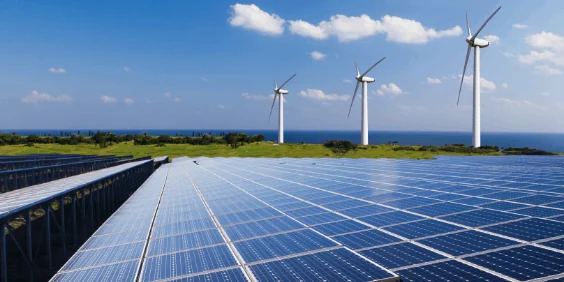Alberta invites public feedback on nuclear program

The Alberta government is seeking feedback on how nuclear power could be integrated into the province’s energy mix.
Earlier this week, Alberta launched a formal nuclear energy public engagement process.
Specifically, the government is asking what aspects of nuclear energy Albertans would like to know more about and how they can participate in future engagement activities. Until September 25, 2025, Albertans can answer a 10- to 15-minute Nuclear Energy Development Survey.
Industry and other stakeholders can submit a Request for Information (RFI) by October 25, 2025, concerning the opportunities and barriers in developing a nuclear industry in Alberta, by emailing a completed RFI to nuclear.engagement@gov.ab.ca.
Who should participate?
The integration of nuclear power into Alberta will impact a broad range of stakeholders.
- Existing power market participants may want to know how their operations could be impacted by nuclear power, how they could become involved in new nuclear power developments and what role the Alberta government will have in supporting a new nuclear power industry.
- Municipalities and Indigenous communities may want to understand how they will be consulted for any prospective nuclear power projects and what role they may have in regulating or participating in new nuclear developments.
- Manufacturers and service providers may want to begin assessing the qualifications or compliance requirements needed to participate in a nuclear power build-out in Alberta and across Western Canada.
All of these stakeholders should consider participating in the current public engagement.
Phased engagement
This engagement will be completed in phases:
- First, an advisory panel will gather initial input from Albertans, Indigenous communities and stakeholders to help design the next phase of engagement. Such feedback will help the government understand Albertans’ questions and the barriers to developing a nuclear industry in Alberta. This step will also ensure meaningful engagement with different individuals, groups and communities across the province.
- Phase two will focus on engaging Indigenous communities and organizations in depth to better understand their perspectives on nuclear energy development and will provide additional opportunities for industry and the public to share feedback.
Demand for electricity continues to rise, and the Alberta government believes nuclear power can provide safe, reliable and low-emissions energy to help meet such demand. Presently, the province relies on natural gas and renewable sources, such as wind and solar. Nuclear power is one of several options being examined to help meet long-term electricity goals for grid reliability, lower-emissions power and affordability.
Nuclear Energy Engagement and Advisory Panel
Six leaders from government, industry, academia and other relevant sectors will comprise the Nuclear Energy Engagement and Advisory Panel to advise the province on its potential role in advancing a nuclear energy industry.
This expert panel will gather feedback on how nuclear power could be integrated into Alberta’s energy mix to provide reliable baseload power and opportunities for industrial application, such as the oil sands. At the same time, such energy will further reduce greenhouse gas emissions. The panel will deliver its final report by March 1, 2026.
Professor Rudiger Tscherning, who sits on the newly formed advisory panel, recently joined other industry leaders and MLT Aikins lawyers to speak at the Nuclear Development in Western Canada event, hosted by MLT Aikins, the University of Calgary Faculty of Law and the International Nuclear Law Association.
Next steps
Canada is taking a leadership role in nuclear energy and the development of small modular reactors (SMRs). Opportunities abound in Western Canada for nuclear energy developments. Your organization may want to begin exploring how you can build out your existing operations or first become involved in the growing Western Canadian nuclear industry.
For more information about the Nuclear Energy Development Survey, support in submitting an RFI, or advice on preparing for your involvement in the Western Canadian nuclear energy industry, contact one of the lawyers in our energy practice group. We’re ready to assist.
About our nuclear energy group
Our lawyers have been exploring the opportunities and obstacles involved in uranium and nuclear power generation in Canada for decades, including the recent rise of SMRs and microreactors. MLT Aikins has a unique understanding of the political dynamics and regulatory hurdles that participants face in the current industry landscape.
We help clients address the regulatory, commercial and construction considerations within the nuclear sector. We advise on various matters relating to uranium mining, construction and operation of nuclear facilities; regulation and the distribution, sale and consumption of nuclear energy; disposal of nuclear waste; and in disputes relating to these matters.
Note: This article is of a general nature only and is not exhaustive of all possible legal rights or remedies. In addition, laws may change over time and should be interpreted only in the context of particular circumstances such that these materials are not intended to be relied upon or taken as legal advice or opinion. Readers should consult a legal professional for specific advice in any particular situation.







